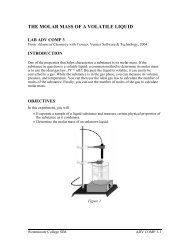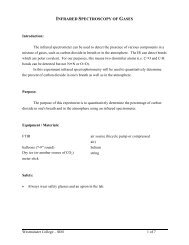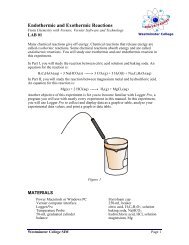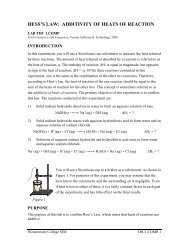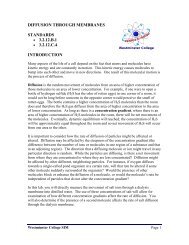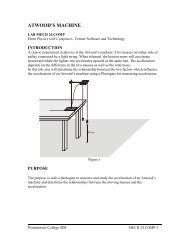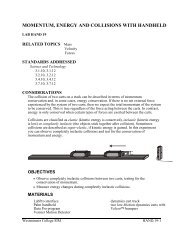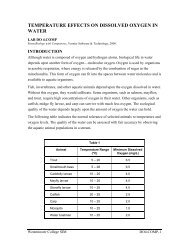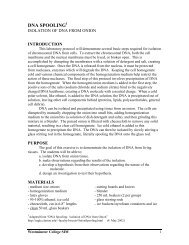Chapter 6 - Marine Vertebrates
Chapter 6 - Marine Vertebrates
Chapter 6 - Marine Vertebrates
Create successful ePaper yourself
Turn your PDF publications into a flip-book with our unique Google optimized e-Paper software.
Most marine vertebrates possess the standard five sensory systems of vision, touch, taste,hearing, and smell, although they favor different systems relative to their terrestrial relatives(vision is of little use under water) and even possess additional sensory systems that are onlyuseful in water (such as electroreception). Chemoreception is very important to marine fishes,and they may possess some of the most sensitive noses of any animal, but tetrapods all closetheir nostrils while under water and therefore rely on their sense of smell very little. The abilityto detect weak electric and electromagnetic fields has been demonstrated in bacteria,cartilaginous and bony fishes, some birds, and possibly some whales. Aquatic vision requiresalterations to terrestrial visual systems to compensate for the in the quality and quantity of lightavailable under water, such that marine vertebrates focus by moving the lens within the eye(rather than changing its shape), and detect light with altered ratios of photoreceptor cells andunique visual pigments. Most marine vertebrates can hear, and they use anatomical systems thatare very similar to those seen in terrestrial species. Nevertheless, they need to compensate forthe fact that sound travels about fives times more rapidly under water, and often change the routeby which sound travels on its way to the sensory hair cells in their cochlea.http://bioscience.jbpub.com/marinebiology/outlines/<strong>Chapter</strong>_06_Outline.rtf




